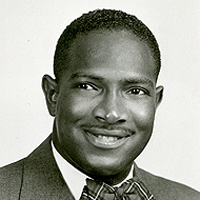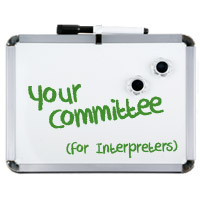Articles by BRENDA CARTWRIGHT
Interpreter 4-1-1: Your Reputation
As a professional interpreter, it is wise to consider your reputation in the community in which you work. Your reputation is formed on a number of important factors. Are you prepared? Are you dressed appropriately? Are you ready to represent the client and profession to the best of your ability? Are you engaged and give back to the community?
Living Loud: Andrew Foster – Pioneer Missionary, Educator, Mentor, and Advocate for the Deaf
Andrew Foster was the first African-American to earn a Bachelor of Arts from Gallaudet University. He ultimately set up 32 schools for the deaf in Africa. Because of this, he is known as the “Thomas Hopkins Gallaudet” of Africa and the “Father of Deaf Education in Africa.”
Signs That Are Close... But Not the Same - Set 11
This article is part of our “Signs That Are Close... But Not the Same” series, which highlights signs that look similar, but have different meanings. The signs discussed in this article include (1) SEVERAL vs. FEW, (2) USE vs. GET USED TO, (3) LONG AGO vs. USED TO, (4) INTRODUCE vs. INVITE, and (5) PROBLEM vs. DIFFICULT.
Living Loud: Allen Snare – Deaf Pastor, Evangelist, and Missionary
Allen Snare was a Deaf Pastor, Evangelist, and Missionary. Read the article to learn more about the life and accomplishments of this amazing Deaf man.
Interpreter 4-1-1: Your Interpreter Committee
All of us have heard “little voices” in our head. There may be a voice when you do something you shouldn’t, when you receive praise or when you’re trying to stay motivated. It could be the voice of a parent, a coach, a teacher, a friend, or anyone.
This chorus of voices is sometimes referred to as “The Committee” by interpreters. It represents our minds talking to us while we’re working, playing and living life. Think about what you hear when you’re interpreting. Is your Committee nice? Are they supportive? Do any Committee members have a louder voice than the rest? Here are examples of possible Committee members...
Signs That Are Close... But Not the Same - Set 10
This article is part of our “Signs That Are Close... But Not the Same” series, which highlights signs that look similar, but have different meanings. The signs discussed in this article include (1) CAFETERIA vs. TWIN vs. RESTAURANT, (2) SOCKS vs. STARS, (3) SEE vs. WATCH, and (4) ENOUGH vs. FULL.
Interpreter Q & A: Using Your Phone During a Break
This Interpreter Q & A asks: During a lull in a staff meeting where I was interpreting, I used my phone to enter some appointments into my calendar (and check my grocery list). Afterwards, my team interpreter told me that she thought doing that was rude and unprofessional. Do you agree?
This article is part of our "Dear BC, Interpreter Q & A” series, which answers questions on interpreting and Deaf culture from multiple perspectives.
Interpreter Q & A: What are our boundaries as interpreters to say something to a Deaf client about their right to request a qualified interpreter?
This Interpreter Q & A asks: During a doctor’s appointment I interpreted, the doctor referred the Deaf patient to physical therapy. When we were leaving the office, the Deaf client asked me about my availability to interpret her upcoming physical therapy appointments. I told the Deaf woman my schedule and she said, “Oh well, that’s fine, if you can’t come, my daughter will come and interpret.” Her daughter is a young girl who can sign, but she is not an interpreter. The daughter has no training or certification.
What are our boundaries as interpreters to say something to a Deaf client about their right to request a qualified interpreter? I don’t want to look like I’m just trying to make money. My concern is also that her doctors will begin to think that they don’t need to hire interpreters for her because she can just bring her daughter for free.
This article is part of our "Dear BC, Interpreter Q & A” series, which answers questions on interpreting and Deaf culture from multiple perspectives. This article was also published in the Fall 2018 (Issue 35 Volume 4) Edition of VIEWS Magazine from RID.
Interpreter Q & A: Will Technology and Cochlear Implants Make Interpreters Become Obsolete
This Interpreter Q & A asks: I am currently in an interpreter training program, but I’m starting to have doubts about the viability of my choice of careers. My concern is twofold. I’ve heard several experts say that interpreters will one day be replaced by technology! I also am aware that cochlear implants are a big deal for parents with young deaf children, so I’m wondering if maybe interpreters will become obsolete. What do you think?
This article is part of our "Dear BC, Interpreter Q & A” series, which answers questions on interpreting and Deaf culture from multiple perspectives.
Signs That Are Close... But Not the Same - Set 9
This article is part of our “Signs That Are Close... But Not the Same” series, which highlights signs that look similar, but have different meanings. The signs discussed in this article include (1) CHILD vs. SHORT, (2) PIG vs. DIRTY, (3) CHAIR vs. SIT, (4) TRUE vs. TELL, and (5) BUT vs. DIFFERENT.

















